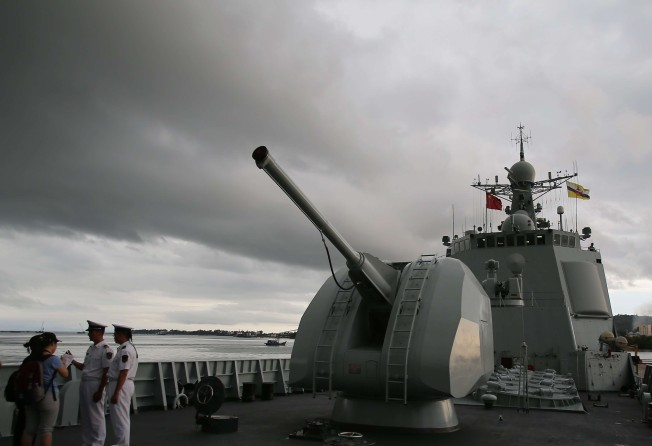Security vs economics: Asean countries stuck between US and China in South China Sea row
As Beijing and Washington seek support ahead of court ruling, smaller nations face diplomatic balancing act

Small countries in Southeast Asia face a delicate diplomatic balancing act as China and the United States seek their support ahead of an international court ruling on the South China Sea disputes.
Beijing and Washington are intensifying diplomatic, economic and security engagement with the 10-member Association of Southeast Asian Nations, which does not have a unified stance on the disputes, in an effort to win them over.
Observers say that despite being offered sweeteners such as infrastructure projects most member states have been reluctant to take sides.
“If relations continue to worsen between the two major powers, Asean countries will face a dilemma as it is important for them to maintain good relations with both Beijing and Washington,” Lee Ying Hui, a maritime security expert at Singapore’s Nanyang Technological University, said. Asean members had to consider two factors: their security relationship with the US, and their economic ties with China, she said.
Asean has shown signs of wanting to engage more players in the region. It invited China and the US to take part in a recent maritime exercise in the South China Sea involving 18 countries.
“The Asean countries do not want to take sides ... This is why they invited both countries for the exercise, to show that they are impartial, while using the drill to show unity as a bloc,” Yue Gang, a retired PLA colonel, said.
China’s clout in the region was highlighted recently when Beijing released water from a dam to relieve a drought in the Mekong Delta. Analysts said the move underscored Beijing’s leverage over the downstream countries of Cambodia, Laos, Myanmar, Thailand and Vietnam.
Soon after, Beijing claimed it had agreed with Cambodia, Laos and Brunei that disputes in the South China Sea would not affect ties between Asean and China – though analysts note that Cambodia has since denied reaching a new agreement on the sea, while Laos and Brunei have been silent.
Also following the water release, President Xi Jinping vowed to deepen cooperation with Laos, the chair nation of Asean this year, in talks with President Bounnhang Vorachit.
More recently, the foreign ministry proposed a joint statement with Asean on the disputes.
Thitinan Pongsudhirak, director of the Institute of Security and International Studies at Bangkok’s Chulalongkorn University, said China was exercising “economic leverage for geopolitical gains”.
“China is creating divisions within Asean as smaller states tend to be more sympathetic towards China than the bigger states, while maritime states like the Philippines tend to be more confrontational,” he said.
Some analysts say Beijing’s growing assertiveness in sending ships to the disputed waters will push smaller neighbours towards the US to offset China’s influence.
“Beijing’s strategy is to try and pre-empt Asean taking a collective stand on the arbitration ruling,” said Ian Storey, senior fellow at the Singapore-based ISEAS-Yusof Ishak Institute.
“It’s quite unclear what the basis of China’s announcement [of the agreement reached with Cambodia, Laos and Brunei] is, and whether it is deliberately misrepresenting the view of certain Asean countries.”
As China intensifies its lobbying, the US is also reinforcing its security presence. Its defence secretary Ash Carter has vowed to deepen the military alliance between Washington and Manila. In February, the US brought together Asean foreign ministers and heads of state in an unprecedented summit in Sunnylands.
More Asean countries are tilting into the American orbit
“Perturbed by China’s maritime assertiveness, more and more Asean countries are tilting into the American orbit,” said Richard Javad Heydarian, a political science professor at the Manila-based De La Salle University.
But Sourabh Gupta, a resident senior fellow of the Washington-based Institute for China-America Studies, said Southeast Asian nations needed to consider their development needs. Neither China nor the South China Sea was directly mentioned in a joint statement after the Sunnylands summit, suggesting US attempts to align Asean against China were not fully achieved, he said.
For example, even though Vietnam had competing claims with China in the South China Sea that had led to protests, Hanoi was trying to “get the best of both worlds” by engaging both China and the US, said Shashi Asthana, a retired major general and chief instructor at New Delhi-based think tank United Service Institution of India.